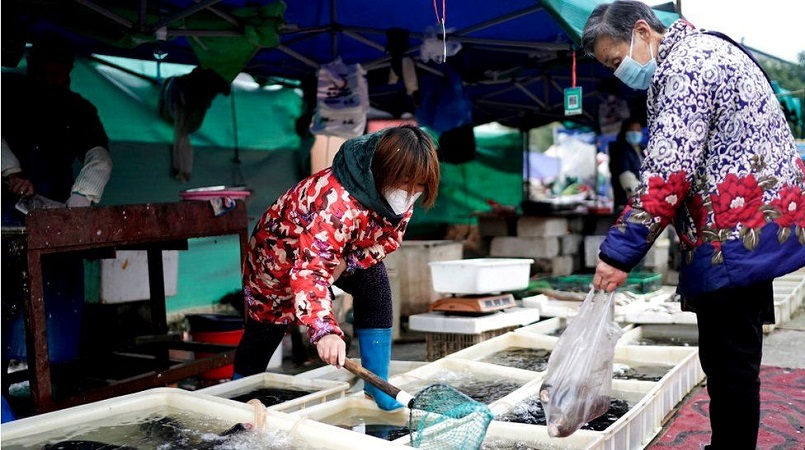
A team of 10 international scientists will travel to the Chinese city of Wuhan next month to investigate the origins of Covid-19, the World Health Organization (WHO) has said.
Beijing has been reluctant to agree to an independent inquiry and it has taken many months of negotiations for the WHO to be allowed access to the city.
The virus is thought to have come from a market in the city selling animals.
But the search for the source has led to tensions, notably with the US.
President Donald Trump's administration has accused China of trying to conceal the initial outbreak.
What is the aim of the investigation?
A biologist on the team travelling to Wuhan told the Associated Press news agency that the WHO was not seeking to apportion blame, but rather to prevent future outbreaks.
"It's really not about finding a guilty country," Fabian Leendertz of Germany's Robert Koch Institute said.
"It's about trying to understand what happened and then see if, based on those data, we can try to reduce the risk in the future."
Dr Leendertz said the aim was to find out when the virus began circulating and whether or not it originated in Wuhan.
The mission was expected to last four or five weeks, he added.
Where and when was the virus first detected?
In the early days of the virus, it was traced to a so-called "wet market" in Wuhan, Hubei province, and it was suggested that this was where it made the leap from animals to humans.
But experts now believe it may simply have been amplified there.
Research suggests that coronaviruses capable of infecting humans may have been circulating undetected in bats for decades.
Last December, a Chinese doctor at Wuhan Central Hospital - Li Wenliang - tried to warn fellow medics about a possible outbreak of a new disease, but was told by police to "stop making false comments" and was investigated for "spreading rumours".
Dr Li died in February after contracting the virus while treating patients in the city.
